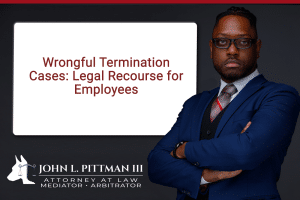## Estate Planning Mistakes to Avoid for Your Family: Essential Insights
Estate planning is an important process that encompasses various strategies and legal frameworks designed to ensure that your assets are distributed according to your wishes after your passing. However, numerous pitfalls can undermine your vision and intentions, leading to complications and distress for your family. Understanding the common estate planning mistakes avoid is crucial, as it not only safeguards your legacy but also provides your loved ones with the peace of mind they deserve.
Estate planning mistakes often arise from a lack of knowledge, oversight, or miscommunication. Many individuals may believe that writing a simple will suffices for complete estate planning, but this can be a naive perspective. Mistakes can range from failing to update your will regularly, ignoring tax implications, to neglecting the emotional and relational factors that inform your estate planning decisions. It is essential to take a comprehensive look at your estate plan to avoid the complications that could arise in the future.
As an accomplished attorney serving clients throughout Texas and California, John Pittman III understands these complexities intimately. His extensive experience highlights how critical it is for families to be aware of potential mistakes in estate planning. By addressing these common pitfalls proactively, you can ensure that your family is protected and that your estate plan serves your intended purposes effectively.
## Understanding the Importance of Estate Planning Mistakes Avoid
Estate planning is not merely about distributing your assets; it also entails a range of decisions that reflect your personal and family values. Understanding what estate planning mistakes avoid means grasping the intricacies involved in decision-making processes regarding wills, trusts, and powers of attorney. Each choice you make has implications not only for your estate but also for the emotional well-being of your beneficiaries.
Failing to approach estate planning with seriousness can result in disputes among family members, increased taxes, or, worse, total loss of control over your assets. By understanding the potential pitfalls, families can take proactive measures to navigate the complexities of estate planning. This awareness enhances the likelihood that your wishes will be respected and carried out appropriately following your death.
With proper guidance, estate planning can provide a sense of security and clarity for your loved ones. Using strategies that align with the law, you can effectively manage your estate and make your intentions clear, thereby mitigating misunderstandings or disputes.
## Legal Framework Surrounding Estate Planning Mistakes Avoid
Legal frameworks governing estate planning in Texas and California mandate specific procedures to ensure that estates are handled in an orderly fashion. One common mistake individuals make is failing to adhere to these legal requirements. Not executing documents correctly or neglecting to follow state statutes can invalidate essential documents like wills and trusts.
In Texas, for example, there are stringent laws regarding the drafting of wills, including requirements for the clarity of language, signatures, and witnesses. Similarly, California has specific stipulations for both wills and estate planning documents that must be meticulously observed to avoid confusion and challenges. Overlooking these regulations can lead to costly delays and unintended distributions of your estate.
Additionally, the failure to regularly update these legal documents as life circumstances change poses another significant risk. Personalities shift, relationships evolve, and new laws are enacted. Thus, it is crucial to maintain an ongoing relationship with a qualified attorney to ensure your estate plan remains relevant and robust.
## Real-World Examples of Estate Planning Mistakes Avoid
Illustrating the importance of avoiding estate planning mistakes can be effectively achieved through real-world examples. Many cases emerge where families face overwhelming challenges due to poorly executed estate plans. One common scenario involves the use of outdated wills, where an individual may have remarried but neglected to update their will to reflect their new family dynamics. This failure can lead to disputes over asset distribution, creating tension and uncertainty for all beneficiaries.
Another example involves families who perceive living trusts as unnecessary, only to find themselves in probate court after the death of a loved one. Trusts can reduce the complexity and costs associated with the probate process; by avoiding them, families often end up enduring lengthy legal battles that only diminish their inheritance and the overall emotional toll.
Lastly, a lack of communication among family members about estate planning choices can compound mistakes significantly. Families often discover only after a loved one has passed that certain assets were not included in an estate plan or that beneficiaries were not updated as circumstances changed. These types of misunderstandings can lead to rifts that persist long after the planning process.
## Steps You Can Take to Avoid Estate Planning Mistakes
Taking proactive steps to refine your estate plan can help prevent common estate planning mistakes. One of the most critical actions is to consult with a legal professional who specializes in estate planning. They can provide tailored advice that considers your unique circumstances, helping to craft a plan that aligns with your goals and conforms to legal requirements.
Another effective strategy is to conduct a thorough audit of your existing estate plan regularly. This should involve reviewing your will, trusts, and any other pertinent documents to ensure they reflect your current wishes. Changes in your personal circumstances—such as marriage, divorce, or the birth of a child—require adjustments to your estate plan.
Furthermore, open discussions with family members regarding your estate planning decisions can prevent misunderstandings in the future. When family members are aware of your intentions and decisions, they are less likely to dispute your choices, thus making it easier for everyone involved after your passing.
## Common Pitfalls in Estate Planning
Several common pitfalls should be top-of-mind for anyone navigating the estate planning process. One prevalent issue is undervaluing property and assets. Many individuals mistakenly assume they have less wealth than they do, which can lead to inadequate planning. A thorough and honest assessment of one’s assets is essential for crafting a robust estate strategy.
A second common misstep is neglecting to choose appropriate representatives. Often, parents designate guardians and executors without properly considering their choices. Making hasty decisions can result in appointing individuals who may lack the skills or availability to fulfill these roles, leading to additional complications during estate settlement.
Lastly, many individuals focus excessively on immediate needs while neglecting their long-term estate planning. For instance, while it’s critical to have health care directives in place, failing to plan for the distribution of assets equitably can lead to family disputes. Balancing short-term and long-term goals is crucial to establish an effective and comprehensive estate plan.
## When to Seek Legal Help for Your Estate Planning Needs
Knowing when to consult a legal professional is vital for effective estate planning. Many individuals underestimate the complexities involved, often resolving to draft a will using generic templates found online. While these methods may seem cost-effective, they frequently result in poorly structured documents that do not fulfill legal requirements.
Engaging an attorney experienced in estate planning should occur when major life changes take place, including marriage, divorce, or childbirth. These events necessitate revisions to your estate plan and professional guidance is invaluable in ensuring compliance with applicable laws.
Moreover, when planning for larger estates, such as those involving significant investments, businesses, or real estate, consultation should not be postponed. An attorney can offer insights into tax implications and optimal strategies for asset protection, using tools such as trusts to mitigate potential financial burdens.
## The Advantages of Legal Representation in Estate Planning
The benefits of having professional legal representation during the estate planning process cannot be overstated. A knowledgeable attorney can provide you with tailored strategies that not only align with your wishes but also respect local laws and regulations. This tailored guidance can greatly enhance the efficacy and precision of your estate plan.
Legal representation can also offer peace of mind. When you work alongside a qualified professional, you are less likely to overlook crucial details that could jeopardize your estate’s integrity. An attorney can also serve as a mediator among family members, helping to facilitate discussions that prevent misunderstandings and future disputes.
Additionally, legal counsel aids in ensuring that your financial and family responsibilities are met, streamlining the execution of your wishes after your passing. They can help structure an estate plan that minimizes tax liabilities and prevents unnecessary financial burdens on your beneficiaries.
## How John Pittman III | Attorney At Law, APC Can Support Your Estate Planning Needs
Under the guidance of John Pittman III | Attorney At Law, APC, clients can navigate the complexities of estate planning with confidence. John Pittman III prides himself on offering personalized services that reflect the unique needs and circumstances of his clients in Texas and California. His deep understanding of local laws ensures that estate planning solutions are both effective and legally sound.
Moreover, John Pittman III and his team emphasize the relationship-building aspect of their practice. They take the time to understand clients’ family dynamics and individual concerns, allowing for a more comprehensive approach to estate planning strategies. This personal touch helps to alleviate uncertainties and empowers families to engage meaningful discussions about their future.
Additionally, should any disputes arise during the estate administration process, the team offers litigation support to protect your interests. Their proactive approach to estate planning aims to minimize potential conflicts, ensuring that your estate is executed according to your wishes.


